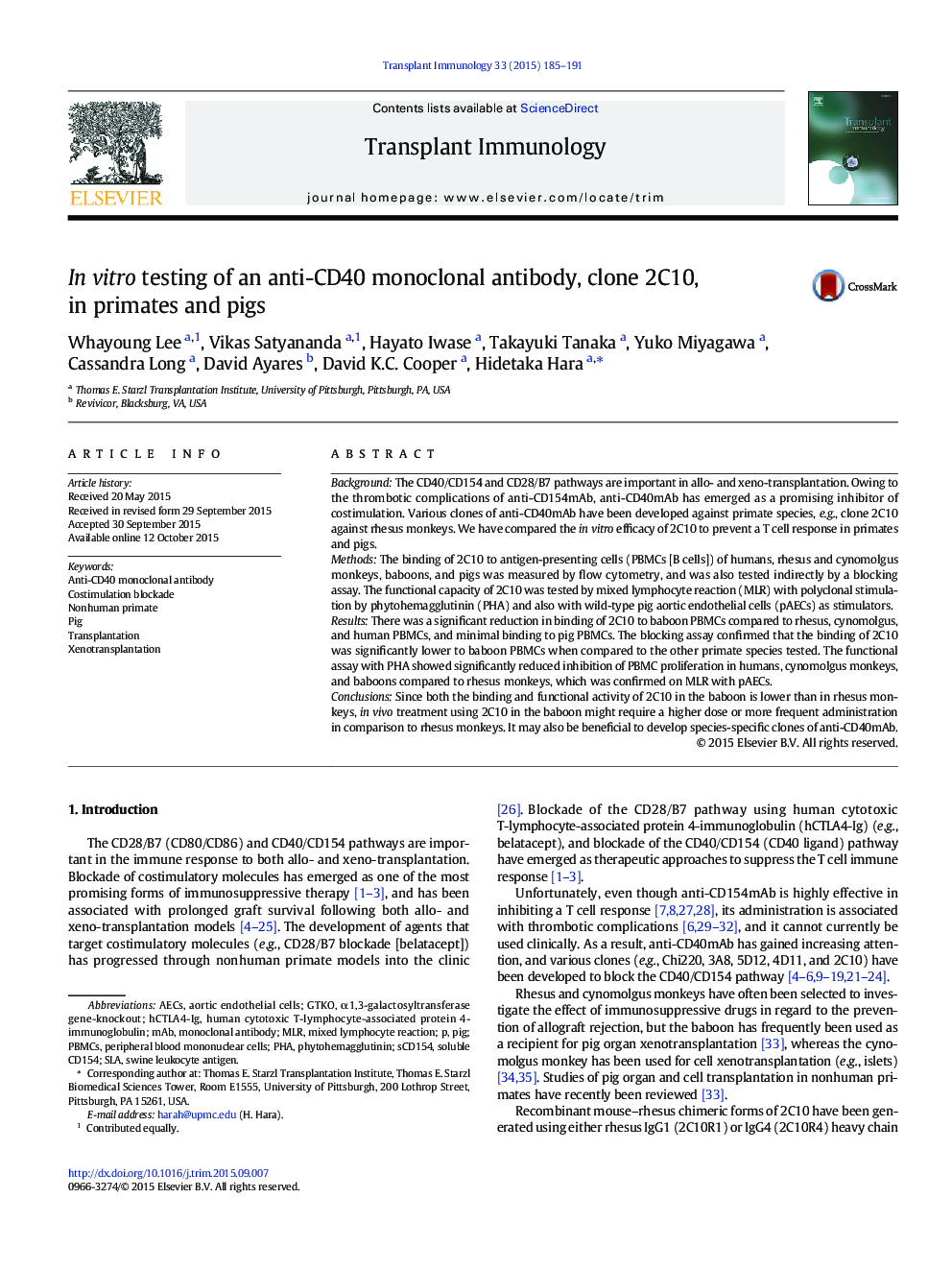| Article ID | Journal | Published Year | Pages | File Type |
|---|---|---|---|---|
| 3391875 | Transplant Immunology | 2015 | 7 Pages |
BackgroundThe CD40/CD154 and CD28/B7 pathways are important in allo- and xeno-transplantation. Owing to the thrombotic complications of anti-CD154mAb, anti-CD40mAb has emerged as a promising inhibitor of costimulation. Various clones of anti-CD40mAb have been developed against primate species, e.g., clone 2C10 against rhesus monkeys. We have compared the in vitro efficacy of 2C10 to prevent a T cell response in primates and pigs.MethodsThe binding of 2C10 to antigen-presenting cells (PBMCs [B cells]) of humans, rhesus and cynomolgus monkeys, baboons, and pigs was measured by flow cytometry, and was also tested indirectly by a blocking assay. The functional capacity of 2C10 was tested by mixed lymphocyte reaction (MLR) with polyclonal stimulation by phytohemagglutinin (PHA) and also with wild-type pig aortic endothelial cells (pAECs) as stimulators.ResultsThere was a significant reduction in binding of 2C10 to baboon PBMCs compared to rhesus, cynomolgus, and human PBMCs, and minimal binding to pig PBMCs. The blocking assay confirmed that the binding of 2C10 was significantly lower to baboon PBMCs when compared to the other primate species tested. The functional assay with PHA showed significantly reduced inhibition of PBMC proliferation in humans, cynomolgus monkeys, and baboons compared to rhesus monkeys, which was confirmed on MLR with pAECs.ConclusionsSince both the binding and functional activity of 2C10 in the baboon is lower than in rhesus monkeys, in vivo treatment using 2C10 in the baboon might require a higher dose or more frequent administration in comparison to rhesus monkeys. It may also be beneficial to develop species-specific clones of anti-CD40mAb.
